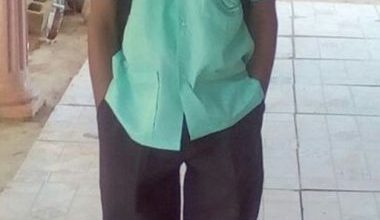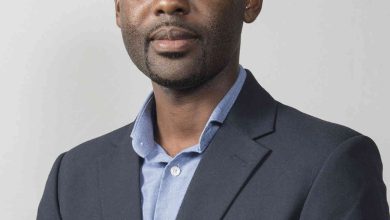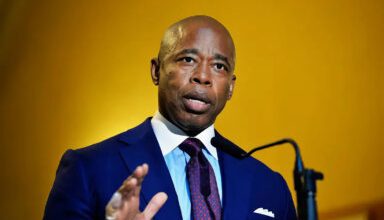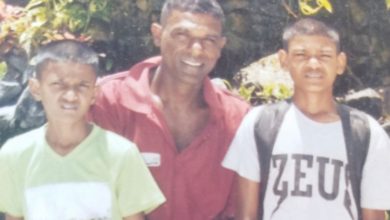UN human rights official says arms embargo and deployment of special force needed for Haiti
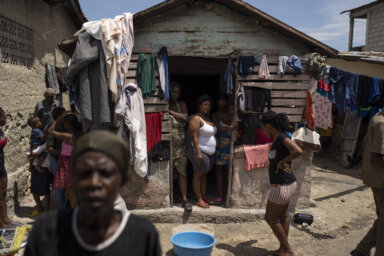
PORT-AU-PRINCE, Haiti (AP) — A U.N. human rights expert said Wednesday that a specialized international force is needed to help fight gang violence in Haiti and that a weapons embargo should be implemented immediately.
William O’Neill, who was appointed expert on human rights in Haiti in April, spoke at the end of a 10-day trip during which he met with civil society leaders, government officials and victims of gang violence.
“I found a country bruised by violence, misery, fear and suffering,” he said, adding that all types of human rights are being violated. “It is urgent to take action. The survival of an entire nation is at stake.”
O’Neill said the absence of government is palpable and that the lack of response by officials is affecting people’s access to water, food, health, education and housing. He added that while Haitian authorities face “immense challenges,” the government has a duty to respond within its limited capabilities.
“Entire neighborhoods are left to their fate, without access to any public service,” he said.
O’Neill’s visit comes as an understaffed and under resourced police department struggles to fight against warring gangs who have grown more powerful since the July 2021 assassination of President Jovenel Moïse, with gangs now estimated to control up to 80% of the capital. The violence has led to an increase in starvation, with people unable to leave their homes and trucks unable to transport goods to Port-au-Prince and beyond.
The surge in killings, rapes and kidnappings in Haiti has led to a violent uprising, with civilians killing nearly 200 people since April in their fight against suspected gang members. The uprising has been criticized by some who worry that innocent people are being targeted, while O’Neill said the movement reflected a failure of Haiti’s judicial system.
“History has shown that popular justice and its many excesses have never made it possible to resolve violence,” he said.
O’Neill said deploying a specialized international force that would work alongside Haiti’s National Police “is essential to restore the freedom of movement.” He also said that an embargo on arms, especially those from the U.S., is crucial given that no weapons are produced in Haiti.
Several U.N. officials have called for such a deployment, a request first made by Haitian Prime Minister Ariel Henry in October last year, but the U.N. Security Council has not taken action, opting instead to impose sanctions.
In an aside with The Associated Press after the press conference, O’Neill said he envisioned a specialized police force skilled at dealing with gangs and organized crime working alongside Haiti’s National Police, with local authorities taking the lead. He said such a force would provide advice, guidance and possibly backup.
“Whoever comes, if they come, is not going to stay forever,” he said.
O’Neill also noted that despite calls for Haiti to hold general elections, it’s currently not safe to do so.
O’Neill also criticized what he called the inhumane conditions that inmates at the main prison in Port-au-Prince and in Cap-Haitien face, noting that more than 200 of them died last year.
“I ask the authorities to make every effort to allow detainees to live in dignity; this includes immediate and constant access to basic needs,” he said.
He also urged authorities to restore operations at a court in Port-au-Prince that was captured by gangs last year and has not functioned since then.
In addition, O’Neill also called on Haiti’s government to fight sexual violence, with the number of such incidents doubling last month. He noted that gangs often collectively rape girls and women as a way to control the population.
Coto reported from San Juan, Puerto Rico

